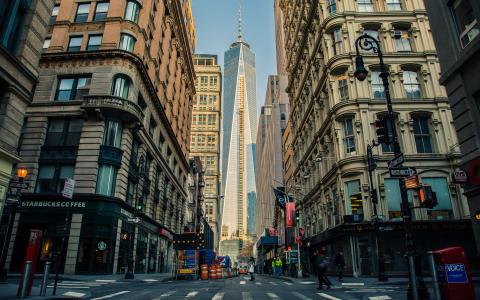
(Yahoo!Finance) - Enough already.
If there was ever a pithy slogan or rallying cry suited for a leader in crisis, the above sentence would be perfect for New York City Mayor Eric Adams, and could be applied on at least two fronts: working from home and the Big Apple’s skyrocketing violent crime.
In recent days, Hizzoner has called upon CEOs to curtail generous remote work arrangements that are hampering the city’s recovery efforts (a subject we’ve hit in the Morning Brief recently). Meanwhile, Adams and New York Governor Kathy Hochul are moving to address deteriorating safety conditions on public transit.
Both issues are interconnected, and have emerged as flashpoints in the city’s halting recovery. In order for workers to come back to offices where estimated occupancy rates are languishing below 30%, a few things need to happen.
Employers must incentivize staff to return to a pre-pandemic office culture that a growing number of sages believe is a relic of the past, at a time when it's become clear that workers are having a hard time letting go of Zoom/Google Meet work habits. But in order to do that, people also need to feel comfortable riding public transportation again, and venturing out into redoubts that increasingly resemble an untamed Gotham City (sorry Batman).
Even the relative safety of home isn’t nearly as secure these days as it used to be (a fact to which I can attest personally, having recently intercepted a would-be "porch pirate" attempting to steal a package). That alone is leading people to flee for other (cheaper) cities and states that don’t tax them for the privilege of living in squalor, bloodshed and generalized dysfunction.
“There’s a very tight relationship between perceptions of crime … and economic prosperity and dynamism,” Rafael Mangual, a senior fellow and head of research at Manhattan Institute’s Policing and Public Safety Initiative, told the Morning Brief in a recent interview.
Traditionally, people have been willing to pay higher costs associated with living in expensive but thriving metropolises like New York, San Francisco (now beset by a crime wave so bad that voters are moving to recall its progressive district attorney), and Los Angeles (the scene of a series of brazen train robberies covered in explicit detail by Yahoo Finance’s Dani Romero).
However, Mangual explained living in these places involve trade-offs between public officials and citizens who ultimately pay higher taxes and living costs to enjoy a higher standard of living and convenience. The pandemic era’s deteriorating quality of life has made many citizens question if it's worth the price, the researcher suggested.
“There are all these things that really require you to feel safe and make that choice on a consistent basis,” he said. “If public order begins to deteriorate, the balance of what you’re losing in terms of life in the city vs. the suburbs changes.”
The COVID-era remote work boom “means we all have significantly more choices. If you wanted to do certain types of work you had to be in NY or LA [but] that’s no longer the case. The perception of safety is really key, ultimately if people don’t feel safe, they’re going to act accordingly,” Mangual told the Morning Brief.
To be fair, New York isn’t a complete hellscape. The rebound from the darkest days of COVID-19 have been a testament to what UBS analysts referred to recently as New Yorkers’ “exceptionally resilient” character that weathered the aftermath of September 11 and the 2008 financial crisis.
“We readily acknowledge that the appearance and subsequent spread of the Omicron variant has slowed the nascent economic recovery, The city's perennial budget challenges will prompt robust debate) as will questions over public safety and criminal justice,” the firm wrote in a rosy analysis last month.
“But we reject the idea that New York's best days are behind it and instead make a concerted argument that its unique attributes still offer investors an opportunity to benefit from its recovery,” the authors added.
However, others aren’t nearly as optimistic.
Adams — a former police officer — has adopted a hard line on criminal activity, but Mangual suggested the mayor could find himself hamstrung by a City Council that has become “increasingly radical,” and a Manhattan district attorney that’s also come under fire for being too permissive on crime.
“You can have the right ideas but you need the right infrastructure to put those into practice,” Mangual said, which means prosecutors, legislators and judges should be all on the same page. However, “that’s no longer a given. If all those working at cross purposes, there are limits to what can be achieved on the crime front,” he added.
Javier E. David
Editor focused on markets and the economy



